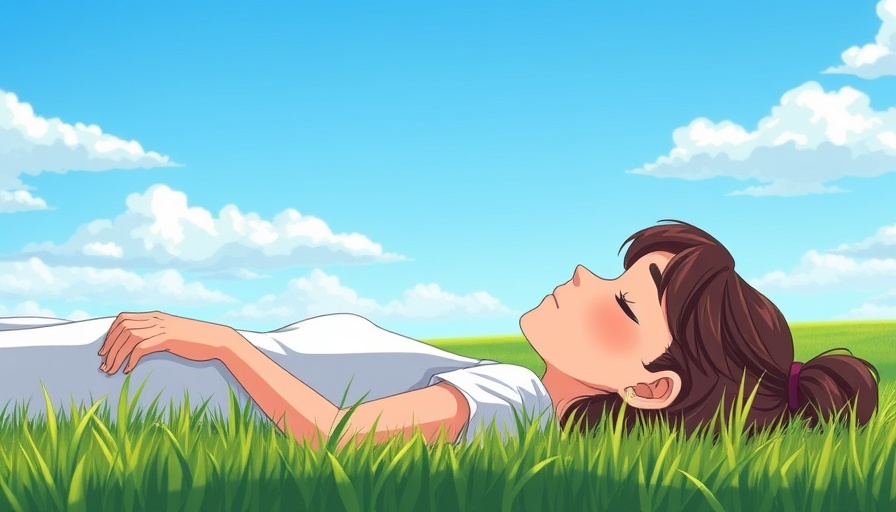
Embracing Stillness: A Journey to Mental Clarity
In today’s fast-paced world, we often prioritize productivity over rest, frequently ignoring our mental health needs. The emerging acceptance of ‘permission to rest’ has proven not only beneficial for individuals grappling with anxiety disorders, but also vital for fostering a healthier community at large. The intention behind embracing stillness can serve as a profound remedy against the escalating tide of panic attacks and generalized anxiety disorders.
The Connection Between Stillness and Mental Health
Research has shown a strong link between stillness, mindfulness practices, and improved mental health outcomes. Engaging in relaxation techniques such as meditation or breathing exercises can significantly reduce anxiety symptoms while enhancing coping strategies. A study on stress management indicates that structured rest periods can alleviate the pervasive effects of workplace anxiety and improve overall well-being.
Understanding Anxiety: Root Causes and Common Misconceptions
Often, societal stigma surrounds anxiety disorders, leading to misinformed perceptions. It's crucial to clarify that anxiety disorders are medical conditions, not personal failings. Social anxiety, phobias, and generalized anxiety disorder (GAD) affect individuals on varying levels, necessitating a blend of treatment methodologies—including psychotherapy, medication, and community outreach programs. Moreover, the COVID-19 pandemic heightened the importance of addressing anxiety in both youth and adult demographics, emphasizing the need for early intervention and education.
Holistic Approaches to Anxiety Management
Understanding that mental health encompasses various factors—socioeconomic, cultural, and personal—is vital in crafting effective management strategies. Holistic approaches, which include art therapy, yoga for anxiety, and nature therapy, offer diverse pathways to healing. Furthermore, exploring nutritional psychology reveals how diet influences anxiety and depression, presenting exciting avenues for self-care.
Practical Strategies for Incorporating Rest and Mindfulness
To effectively incorporate rest into our lives, consider creating a structured routine that allocates time for mindfulness and self-care. Implementing simple strategies like digital detoxes, regular sleep hygiene practices, and scheduled breaks can greatly enhance productivity and diminish stress. Additionally, leveraging resources such as anxiety management apps and online support groups can foster ongoing connection and encourage adherence to mental health care.
Encouraging Conversations Around Mental Health
A critical aspect of promoting mental health awareness lies in open dialogue. Communities are often reluctant to discuss these subjects due to the stigma associated with mental health issues. By creating safe spaces for conversations surrounding workplace wellness and mental health policies, we can slowly transition towards a more supportive society that recognizes the complexities of anxiety and prioritizes collective health.
The Role of Education and Early Intervention
Educational institutions must take the lead in addressing student mental health needs through school-based programs. Integrating mental health education into curricula can empower future generations to prioritize mental well-being. Furthermore, investing in healthcare access and mental health funding can bridge gaps in support for those affected by anxiety, ensuring equitable care for all.
As conversations regarding mental health evolve, it’s evident that embracing stillness serves more than just individual needs. It is a call to action for society as a whole—a reminder to prioritize mental health as we navigate unprecedented emotional landscapes.
By recognizing the importance of self-care and community support, we can pave the way for a healthier future for ourselves and those around us.
If you or someone you know is struggling with anxiety or depression, consider reaching out to local support groups, counseling services, or helplines such as SADAG for immediate assistance and guidance.
 Add Row
Add Row  Add
Add 




Write A Comment